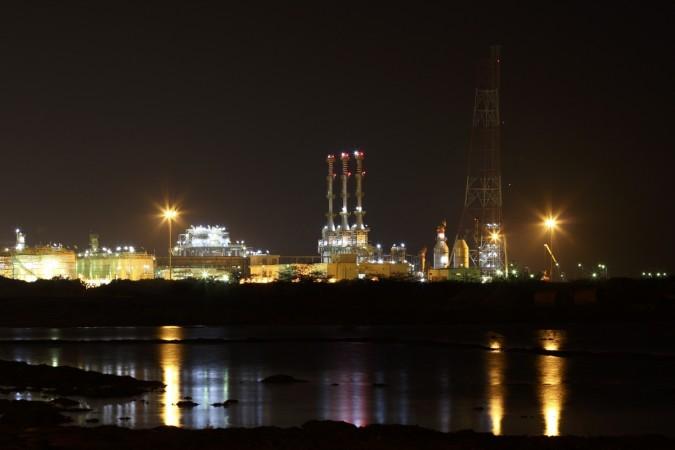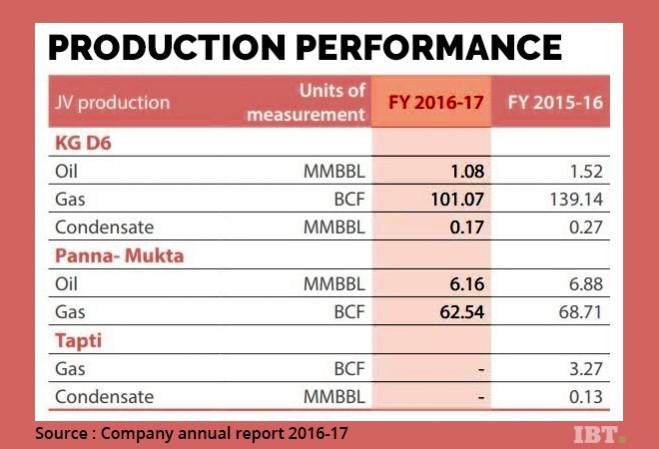
Reliance signalled on Thursday that its three operational wells in the deep-water Krishna Godavari Dhirubhai 6 (KG-D6) block are close to the end of their production and the company is working on extending its lifecycle until a time it can replace it with output from new wells.
KG-D6 gas production declined 27 percent for the year to 101.1 BCF (Billion Cubic Feet). Fall in production was mainly due to natural decline in the fields coupled with sand and water ingress, the company said in its annual report.
"In the near term, RIL's focus is to maintain wells flowing in its KG-D6 block. This involves continuous field management optimisation to sustain well count and manage network. RIL will continue to minimise operating cost without compromising reliability and sustainability of field operations," the company said.
RIL said that as part of the early monetisation of existing discovered resources in the deep-sea KG-D6 block, efforts are underway to leverage the deflation in markets for optimising capex for future development. It said the focus is now on obtaining approvals for the development of projects. "RIL aims to sustain production until future projects are commissioned, while leveraging current market downturn to achieve lowest cost for future projects," the company said.
Detailing measures taken to keep the wells flowing at KG-D6, RIL said that increased liquid hold-up in the subsea network due to natural decline in reservoir pressure could lead to production decline, and finally, early stoppage of production. RIL has been injecting surfactant, a type of foaming agent, to reduce the density of the fluid column in the subsea network which helped unload the liquid between flow systems and resulted in reducing back pressure on the flowing wells. This would allow well fluid to flow to surface facilities.
It said that the KG-D6 operations achieved field uptime of 100 percent which continues to be the global benchmark for deep water facilities.
Earlier this month, RIL Chairman Mukesh Ambani and BP Plc Chief Executive Officer Bob Dudley, expressed renewed confidence in the policy environment and regulatory regime and said they would jointly invest $6 billion in new fields discovered earlier in the deep-sea KG basin block.
The KG-D6 fields on the eastern offshore have been fraught with controversy, a fall in production of natural gas, and disputes over pricing and profits for the past several years.
This month, RIL and BP decided to jointly bow out of a dispute with the Centre on the pricing of natural gas, though two other arbitration cases are still pending a decision.

A source within RIL had told The Hindu last week that the company still intends to pursue arbitration in the two other major disputes that it has with the government in the same fields. The first has to do with the recovery of costs of $2.75 billion incurred by RIL and its partners in the KG-D6 block. The second ongoing arbitration case is over a dispute between state-run ONGC and RIL, and the latter's alleged production of gas from a neighbouring reserve of ONGC.
Panna-Mukta is another major contributor to RIL's upstream business. The PSC for this block is scheduled to expire in December 2019. "The JV partners are exploring options to extend the contract period in line with the Production Sharing Contract extension policy announced by the government of India. The JV partners have been working towards mitigating asset integrity issues due to aging of the facilities," the company said.














